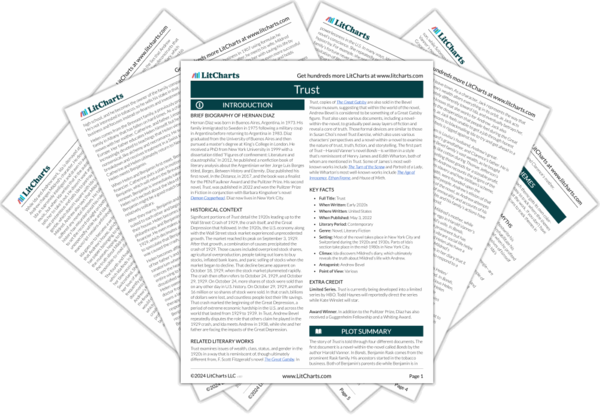This passage highlights the novel’s exploration of how fact and fiction relate to the truth. According to Ida, novels can provide insights in a way that nonfiction may not be able to. In Ida’s view, the fact that the author is in control of fictive works also gives their decisions a kind of moral weight. That is, how authors decide to write a story says something about their moral outlook on the world, whether they mean it to or not.
Trust then implicitly asks, what are the differences between Harold, Andrew, and Ida as authors, and what do those differences say about the nature of their lives?
